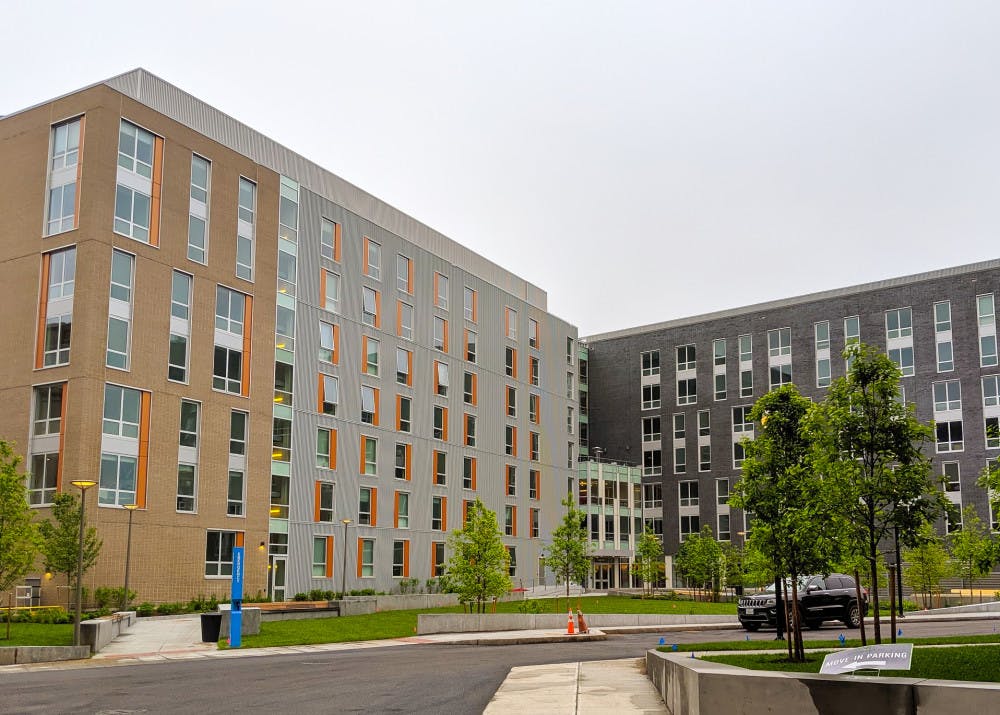The University has purchased River House, a 174-unit residential building located in the Jewelry District, with plans to turn the complex into housing for Brown graduate and medical students.
The University formed and executed the purchase of River House through a wholly owned subsidiary, River House Holdings, LLC, allowing it to “directly assume the tax stabilization agreement (TSA) in place with the property’s current owner,” according to a press release.
Through the subsidiary, the University will inherit the current TSA in full, ensuring the continuity of tax revenue without disruption in order to honor existing property tax commitments, Russell Carey ’91 MA’06, executive vice president for planning and policy, said in the press release.
The University plans to change River House’s rental fee structure from one created for the commercial rental market to one that is more “affordable” and “equitable” for students, according to the press release. A University working group will also “complete a full review of rental rates and amenities across Brown-owned graduate student housing.”
River House, located at 1 Point St. in Providence, has the capacity to house 270 students in either studio, one-bedroom or two-bedroom apartments. By purchasing it, Brown seeks to address the need for “affordable, high-quality housing options” close to the University’s campus, a need which has been expressed by Brown graduate students for years.
Currently, the University provides auxiliary housing units for 80 graduate students each year, which accounts for roughly 2.5 percent of the total graduate and medical student population of around 3,100 students. While remaining students secure housing in neighboring communities, surveys conducted by the Graduate School and the Graduate Student Council report that some students must seek external employment to meet the cost of living, or else live in inconvenient or inaccessible neighborhoods.
“The council had heard for a long time that the quality of housing around campus is deteriorating at the same time as costs are increasing,” said Alastair Tulloch GS, a Ph.D. candidate in neuroscience and former president of the Graduate Student Council, in the press release. “Having Brown provide graduate students with an affordable housing option that’s also higher quality than much of what is currently available to them is going to drastically improve the lives of the graduate students who get to live there.”
Each River House unit will be fully furnished with kitchen appliances, wireless internet and a washing machine and dryer. The building also includes common areas accessible to student residents such as “a gym, rooftop patios, two business centers with printer access, a conference room and a lobby that includes couches, a coffee bar and other features.”
The University hopes that the high quality of housing that River House provides will bolster the University’s ability to attract talented master’s, doctoral and medical students from around the world, said Dean of the Graduate School Andrew G. Campbell in the press release.
“As graduate students, we can often feel siloed within our departments — especially when we’re also living far from campus or alone,” Tulloch said. “This shared living space will help graduate students form meaningful relationships with each other across many disciplines, which will enrich both the quality of our personal lives and also our academic pursuits.”
The complex was built by private real estate developers GMH Communities and Wexford Science & Technology, both of which specialize in providing housing for students in partnership with universities.
Purchasing River House is part of a series of Brown investments — currently totaling more than $225 million over the past decade — in Providence’s Jewelry District, where the Alpert Medical School is located. Past projects include South Street Landing and the Innovation Center at 225 Dyer St.
“The earliest conversations about the potential to revitalize the abandoned South Street Landing power plant started as Brown explored options to create graduate student housing,” Carey said in the release. “A robust public-private partnership turned SSL into the anchor location that it has become, and River House followed as private housing two years later. In many ways, the opportunity to now dedicate River House for graduate student housing feels like a full-circle moment and another key milestone in the rebirth of this long-overlooked neighborhood.”
Previously, the University turned River House into undergraduate housing during the pandemic to accommodate a de-densified campus. When River House first opened in 2019, University students, faculty and staff had the first right to lease 200 of the apartments in the building during the pre-leasing period, The Herald previously reported.
Brown will honor all existing leases, and will maintain commercial space in the building for current tenants. But over time, the University will transition occupancy from private leases, currently held by a mix of Brown students and unaffiliated renters, to Brown-managed housing agreements for students.

Gaya Gupta was Senior Editor of Digital News for the 132rd Editorial Board. She previously covered diversity on campus. She is a junior from the San Francisco Bay Area studying computer science and English.





